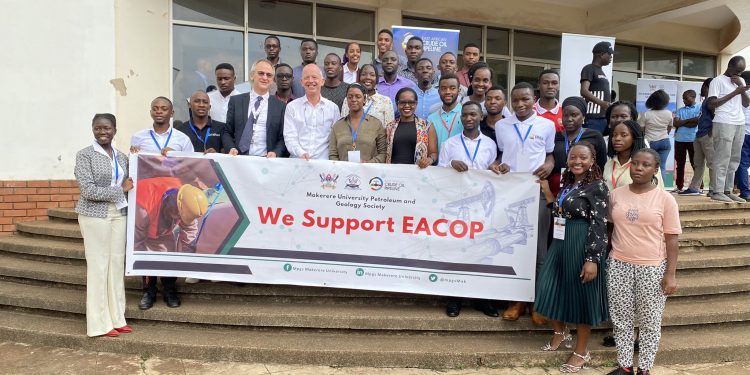University students taking oil and gas industry-related studies have expressed worry that the current controversies about Uganda’s industry could affect their future if not handled carefully.
The students say that what drove them to that courses were the expectations they had about the success of the industry because, should it be disrupted, their dreams will be dashed.
The students and the university leaders gave their views at a dialogue with the oil and gas companies and the Petroleum Authority of Uganda, called by the Makerere University Petroleum and Geological Society to understand the basis of the ongoing debate.
Following an EU parliamentary resolution last month, various reactions came from different sections of society and some groups of students, both for and against the resolution staged demonstrations in Kampala. Leaders of the demonstration supporting the EU resolution were arrested.
Makerere University Secretary, Yusuf Kiranda, called for the removal of politics in the debate because this could lead to decisions made based on misinformation.
The EU parliament in part of the resolution urged the Ugandan and Tanzanian governments and the oil companies to halt the development of the projects, particularly the East African Crude Oil Pipeline, EACOP for at least a year and look for an alternative route.
Julius Mutabaazi, the past president of the society says that apart from the significant direct benefits to the economy by the industry, the projects have so far been helpful to students, in terms of offering them internship and employment opportunities.
The Students intend to gather and share adequate information about the industry and help make informed decisions. They say that their courses emphasize respect for the environment and that this gives them a reason to be concerned about the ongoing debate.
The current Society President, Rahma Nantongo says that some of them who visited the Tilenga projects were surprised at how much information the public and students in particular need to get.
The campaigns against the projects have targeted financiers including lenders and insurance companies. The activists say apart from human rights violations, the general ecosystem is at risk, especially water bodies, vegetation and wildlife.
Martin Tiffen, the General Manager of EACOP, said a lot of falsehoods have been said including the project taking people’s land without compensation. He said compensation is going on and stressed that they will not start construction until all the people have been compensated, while those yet to be compensated continue to use the land.











